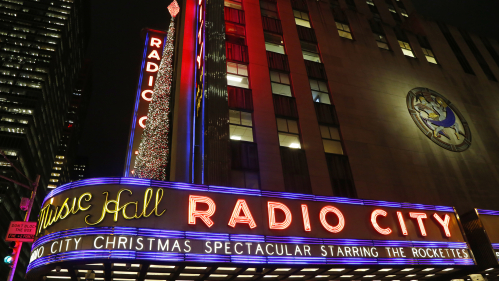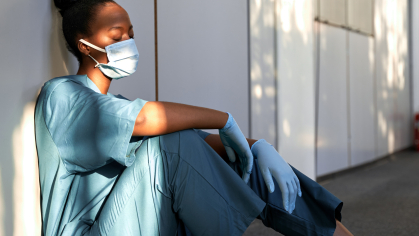Mason Gross School’s Head of Scenic Design Explores Implications of Broadway Shutdown for Artists

Although New York City's holiday season will be quite different this year – the Radio City Rockettes, high-kicking their way across the stage since 1932, are canceled, as is the ball drop in Times Square after 113 years of celebratory crowds – there is a glimmer of hope for traditionalists, especially those who love Broadway. The Macy's Thanksgiving Day Parade (though shortened to a one-block path, with no audience) will feature performances by the casts of Hamilton, Mean Girls, Jagged Little Pill, and Ain’t Too Proud: The Life and Times of the Temptations, all of which went dark in March due to the pandemic.
The prolonged Broadway shutdown has had drastic effects on the careers of theater artists. As we head into the holiday season, usually one of the busiest and most profitable times of year for the theater industry, Lee Savage, head of scenic design in the Theater Department at Rutgers University’s Mason Gross School of the Arts, discusses how theater artists are struggling and shifting gears, and what audience members lose when they are unable to “share time and space” with others during a live event.
Many creatives are “gig” workers whose schedules rely on live events featuring large audiences. What is the biggest concern in the Broadway community right now?
I think the main concern is the uncertainty of how long the pandemic will last and how long it will take for folks to feel safe gathering together again once there is a vaccine or treatment. Another concern is the fact that extended unemployment insurance has not been renewed, and there are limited jobs available that engage our specific skills. Some friends and colleagues I know are having to find other ways to make money while we wait and/or leave the field altogether.
How has the shutdown stoked creativity?
I have seen some amazing experiments and production work being created online and using video to document performances. Although the live audience may be missing in these productions, many artists are exploring the idea of “liveness” nonetheless. Also, much of this work is being made accessible to a greater online audience, which may not have been considered before.
What do we lose when we sacrifice gathering for the live theater experience?
Nothing can take the place of sharing time and space with an audience. We lose the focus, the immersion, the feedback and participation that the audience provides to the live theater experience. It may seem corny, but studies show that humans in a room experiencing a live production start to breathe in rhythm and even have synchronous heart rates. There is a real power in that energy that is hard to recreate through a screen.
How do you think COVID-19 will permanently alter the live theater experience—both for theater artists and for the audience, backstage, onstage, and in the seats?
I think it is really hard to say at this point. I hope that some of the discoveries that have been made about making performances more accessible to a wider audience will be continued in the future. I also hope there will be a renaissance of sorts—a real celebration of human interaction and storytelling that can help fill the void that has been so deeply felt during this time. Furthermore, I am encouraged by the work that some of the theater community is doing right now while it is “paused” to dismantle the white supremacy, systemic racism, and disparities that have been persistent in the field.
Lee Savage is a founding member of Wingspace Theatrical Design who has worked on theater and opera productions on and off Broadway.


